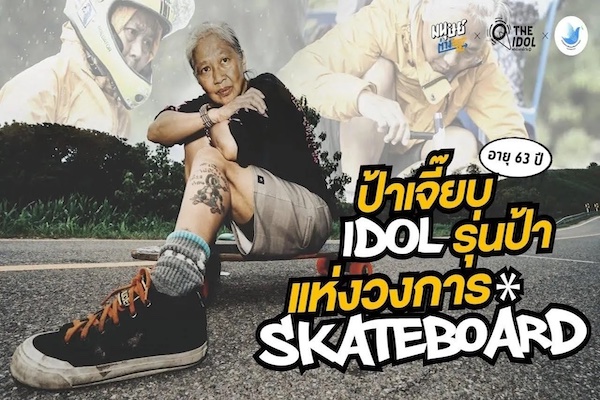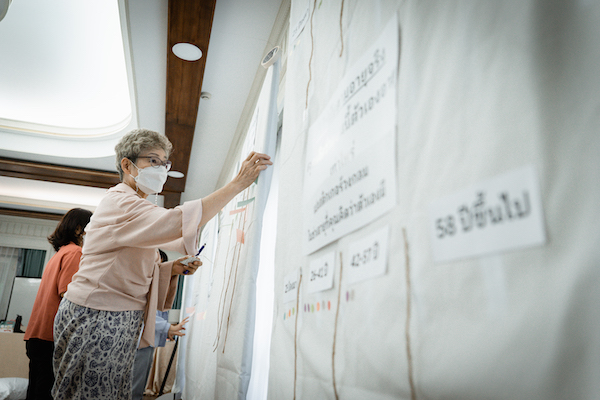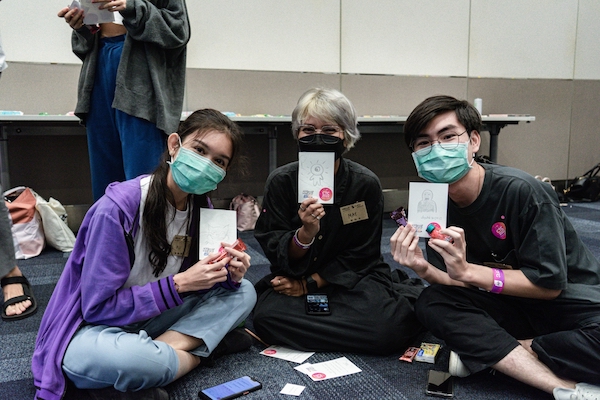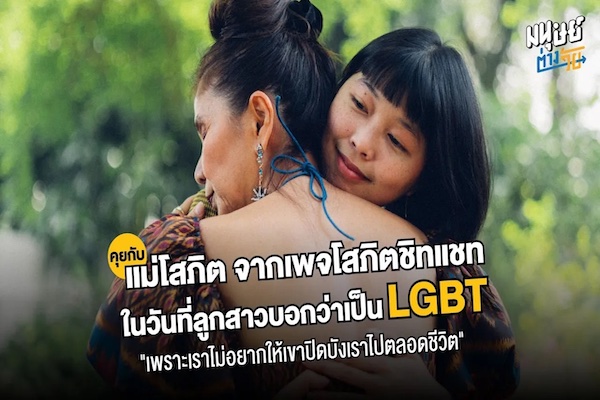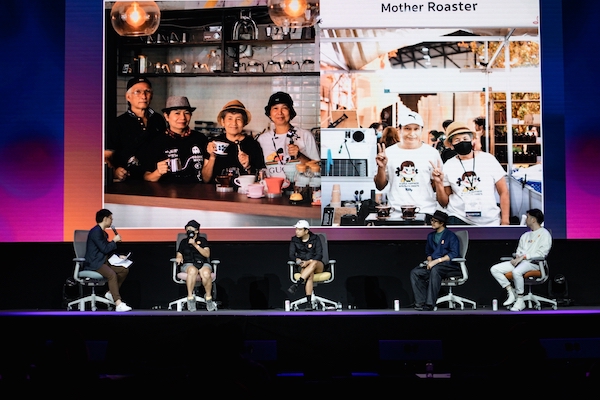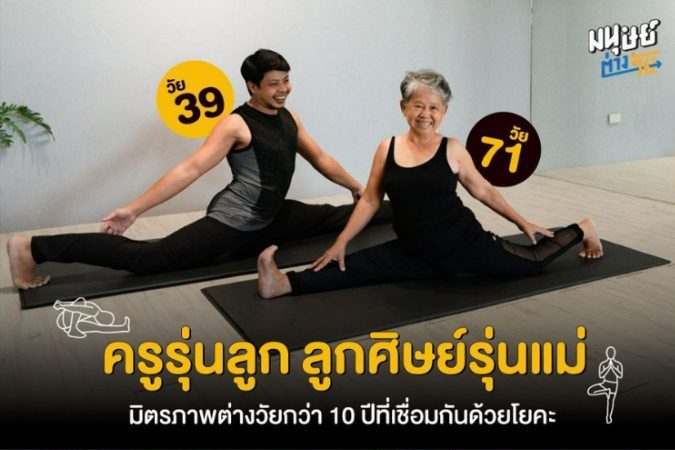2022 HAPI Special Prize Winner
As populations age, it is becoming critical that we directly confront the reality of the pervasiveness of ageism throughout society. While older people often have a wealth of experience to offer and make significant contributions to our society, they are also subject to negative stereotypes and acts of discrimination. The need to address ageism is something that the United Nations has recognized as one of the key pillars of the Decade of Healthy Aging (2020–2030), launching a global campaign to address ageism in 2021.
Thailand is one of the most rapidly aging countries in Asia and is expected to become a super-aged society (over 21% of the population aged 65+) by 2033. However, there is still a widening gap between older and younger people in the country, especially in recent years, where there has been political turmoil between older and younger generations. And people who are pre-retirement age are not well prepared for life after retirement in terms of financial preparation, health preparation, or mindset. This presents a serious problem for Thai society, and one that requires a major shift in attitudes.
Recognizing this issue, Boonmerit Media, a private television
production company, launched an online media platform in 2019 called
“Manoottangwai” (meaning multigenerational in Thai). The initiative has
seen tremendous success in raising awareness about Thailand’s aging
society and bridging the gap between older and younger people. The
project itself is also intergenerational, with younger people working
with older people to produce content.
Using the tagline, “We are different in age, but not from a different planet,” Manoottangwai focuses on creating relatable content that shows ordinary older people. They try to create content that is responsive to current events, for example stories about older people volunteering during the COVID-19 pandemic, which has helped some of their content to go “viral.” Furthermore, in contrast to traditional media around older people, which often reinforces negative images of older people as all being frail or a burden to society, they instead focus on dismantling negative stereotypes with positive stories showing older people’s contributions to society, such as the story of a food delivery service managed by a 75-year-old grandma and her 20-year-old grandson. Finally, they try to “break the box” and look at topics from new angles. In one case, when looking at physical fitness in old age, they shared the story of Auntie Jiab, who enjoys skateboarding at the age of 62.
In addition to creating relatable content, Manoottangwai has also tried to ensure that they use the appropriate platforms to reach their target audience of both older and younger people. While their roots may be in TV program production, they primarily make use of Facebook, YouTube, and Tiktok to share their content. One challenge they faced with using these more recent social media platforms is that they may not be as effective in reaching older people, who are less likely to engage with them. However, their focus on content that is relatable to people of all ages has meant that younger people who enjoy the content can share it with older people in their networks, and they have seen many examples of their content being shared and tagged to older people through their audience.
Thanks to their focus on creating relatable content and sharing it on the most appropriate platforms for their audience, Manoottangwai has been extremely successful in reaching a large number of people. In the three years since the project’s launch, they have accumulated over 1 million users across all platforms, reached over 36 million people on Facebook, and have had over 11 million views of their YouTube videos.
Manoottangwai is also relatively inexpensive to run. They estimate their annual expenses to be about 3–4 million baht per year (US$80-100,000). Most of their expenses are for remuneration, video and article production, and live streaming. They generate income to cover some of these costs through collaborations with public, private, and independent organizations and have worked with over 30 organizations to date including the Thai Health Promotion Foundation, the National Credit Bureau, the Office of Knowledge Management and Development Thailand (OKMD), the Digital Economy Promotion Agency (DEPA) Thailand, Toyota, and AstraZeneca. This income is also supplemented by monetizing their YouTube and Facebook pages, which have brought in a little over $17,000 since 2020.
KEYS TO SUCCESS
- The project’s focus on creating relatable content for both older and younger people has allowed the project to reach a large audience, providing an invaluable public education tool that elevates the voices of older people and raises awareness among people who are pre-retirement age about aging society.
- An emphasis on showing positive depictions of older people and their contributions to society stands in contrast to a lot of media around older people, which can recreate negative stereotypes of older people as frail or being a burden on society. This has allowed the program to effectively address some of the challenges of ageism and to contribute to promoting an age-inclusive society.
- The selection of appropriate platforms and collaborations with other organizations have ensured the project has a wide reach.
- The project itself is intergenerational with younger people helping to carry out many of the platform activities.
Related Resources


